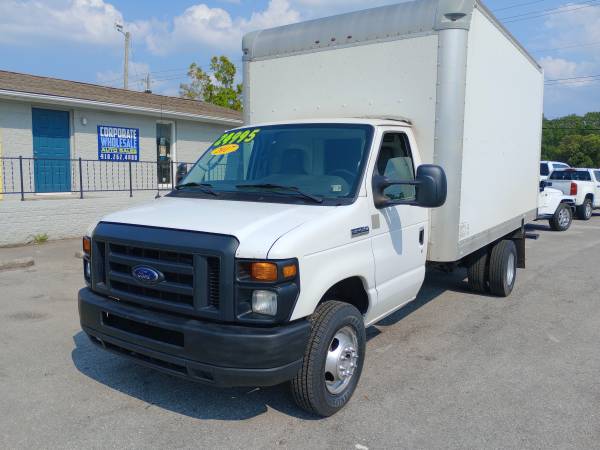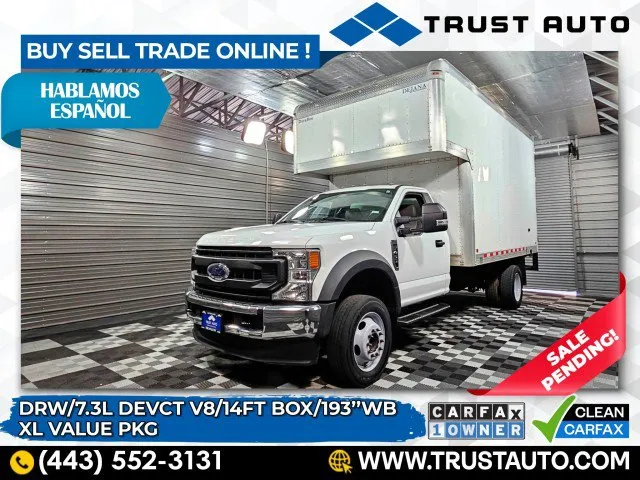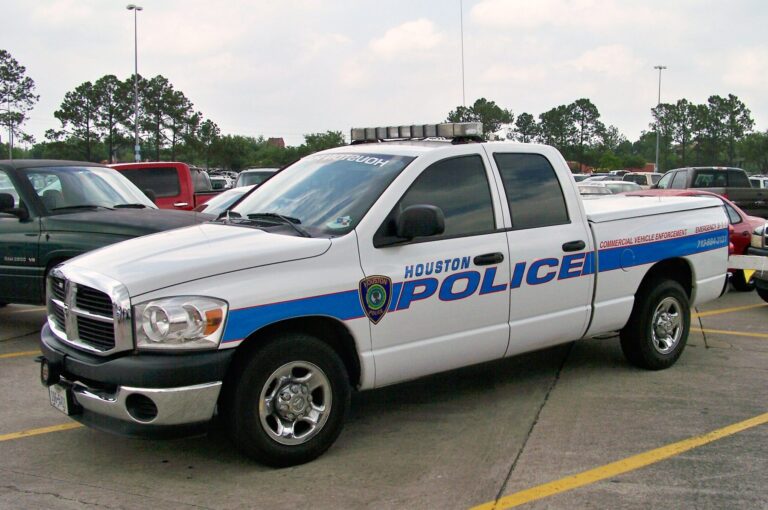Commercial Dually Trucks For Sale: Your Definitive Guide to Buying the Right Workhorse
Commercial Dually Trucks For Sale: Your Definitive Guide to Buying the Right Workhorse cars.truckstrend.com
Introduction: The Unsung Heroes of Heavy Hauling
In the world of demanding work and heavy loads, few vehicles command as much respect and utility as the commercial dually truck. Defined by their distinctive dual rear wheels on each side of the axle, these robust machines are purpose-built for tasks that push standard pickup trucks to their limits. From towing colossal fifth-wheel campers and gooseneck trailers for freight to serving as the backbone for construction crews, agricultural operations, and various service industries, commercial dually trucks are indispensable assets. They offer unparalleled stability, superior towing and hauling capacities, and enhanced safety, making them the preferred choice for businesses and individuals who need a serious workhorse.
Commercial Dually Trucks For Sale: Your Definitive Guide to Buying the Right Workhorse
This comprehensive guide delves into everything you need to know about commercial dually trucks for sale. Whether you’re a seasoned professional looking to upgrade your fleet or a newcomer seeking to understand these powerful vehicles, we’ll explore their unique features, benefits, types, crucial buying considerations, and where to find the perfect dually to meet your commercial needs.
What Makes a Dually "Commercial"?
While some dually trucks are used for personal heavy hauling (e.g., large RVs), a "commercial" dually is typically distinguished by its primary application in a business or vocational setting and often, its specifications.
A commercial dually truck is more than just a pickup with extra wheels. It’s engineered with heavy-duty components designed to withstand the rigors of continuous commercial operation. Key characteristics include:
- Gross Vehicle Weight Rating (GVWR) and Gross Combined Weight Rating (GCWR): Commercial duallies boast significantly higher GVWRs (the maximum loaded weight of the truck itself) and GCWRs (the maximum combined weight of the truck and its trailer). These ratings often push into the Class 3, 4, or 5 truck categories, requiring robust frames, suspensions, and braking systems.
- Enhanced Powertrains: They typically feature larger displacement engines (often powerful turbo-diesels) and heavy-duty transmissions designed for sustained high-load performance and longevity.
- Reinforced Chassis and Suspension: Frames are thicker, suspensions are stiffer, and axles are stronger to handle immense payloads and tow ratings.
- Dual Rear Wheels: The defining feature. Two wheels on each side of the rear axle distribute weight more effectively, reducing tire strain, improving stability, enhancing traction, and providing a safety net in case of a flat tire.
- Vocational Upfit Compatibility: Many commercial duallies are sold as "chassis cabs," meaning they come without a rear bed, allowing businesses to install custom bodies like flatbeds, service bodies, dump beds, tow truck setups, or specialized equipment.

These features collectively ensure that a commercial dually can reliably perform the heavy lifting, pulling, and hauling critical to various business operations.
Key Benefits of Owning a Commercial Dually

Investing in a commercial dually truck offers a multitude of advantages for businesses and serious haulers:
- Superior Towing and Hauling Capacity: This is the primary draw. Duallies can tow thousands of pounds more than single-rear-wheel trucks, making them ideal for large trailers, heavy machinery, and substantial payloads.
- Enhanced Stability and Control: The wider stance of the dual rear wheels significantly improves stability, especially when towing heavy or oversized loads. This reduces sway and provides a more controlled and safer driving experience.
- Improved Traction: With four tires on the rear axle instead of two, duallies offer greater surface area contact with the road, leading to better traction, particularly beneficial in adverse weather conditions or on unpaved surfaces.
- Increased Safety: Better stability, traction, and often larger brakes contribute to a safer towing and hauling experience. In the event of a rear tire blowout, the second tire can help maintain control and allow for a safer stop.
- Durability and Longevity: Built with heavy-duty components from the ground up, commercial duallies are designed for demanding work cycles, translating into greater reliability and a longer service life, which means less downtime for your business.
- Versatility: With the ability to be configured with various body types (pickup, flatbed, service body, dump, etc.), a dually can be customized to suit a wide range of specific commercial applications.
- Professional Image: For many businesses, a dually truck projects an image of capability, reliability, and professionalism, instilling confidence in clients.

Types and Configurations of Commercial Dually Trucks
Commercial dually trucks come in various forms, primarily categorized by manufacturer, capacity, and body style.
By Manufacturer & Capacity Class
- Ford Super Duty (F-350, F-450, F-550): Ford’s F-Series Super Duty trucks are market leaders, known for their robust Power Stroke diesel engines and high towing/payload capacities. The F-450 and F-550 are often chassis cab configurations geared specifically for commercial upfits.
- Ram Heavy Duty (3500, 4500, 5500): Ram’s heavy-duty lineup, particularly with the Cummins turbo-diesel engine, is highly regarded for its immense torque and towing prowess. The 4500 and 5500 models are typically chassis cabs.
- Chevrolet Silverado HD / GMC Sierra HD (3500HD, 4500HD, 5500HD, 6500HD): GM’s heavy-duty trucks, featuring the Duramax diesel engine, offer strong performance and comfort. Their 4500HD, 5500HD, and 6500HD are commercial medium-duty trucks, often sold as chassis cabs.
By Body Style / Application
- Standard Dually Pickup: These come with a factory pickup bed, ideal for businesses that need to haul materials in the bed while also leveraging the dually’s towing capacity (e.g., contractors, landscapers).
- Chassis Cab: The most common configuration for true commercial applications. These trucks come as a cab and chassis only, allowing for a wide range of custom upfits:
- Flatbed Trucks: For hauling large, irregular items, pallets, or equipment.
- Service/Utility Trucks: Equipped with compartments and tool storage for mobile technicians (electricians, plumbers, HVAC).
- Dump Trucks: For transporting and dumping loose materials like gravel, sand, or debris.
- Tow/Wrecker Trucks: Equipped with specialized winches and booms for vehicle recovery.
- Rollback Trucks: For flatbed towing of vehicles.
- Specialty Applications: Crane trucks, boom trucks, box trucks (when paired with a box body), etc.
By Fuel Type
- Diesel: Dominant in commercial duallies due to their superior torque, fuel efficiency under load, durability, and longer lifespan. Ideal for consistent heavy towing.
- Gasoline: Available in some models, offering a lower initial purchase price and simpler maintenance. Better for lighter, intermittent hauling or shorter distances.
Important Considerations When Buying a Commercial Dually
Purchasing a commercial dually is a significant investment. Careful consideration of these factors will help you make an informed decision:
- New vs. Used:
- New: Offers the latest technology, full warranty, and customization options. Higher upfront cost, but potentially lower immediate maintenance.
- Used: Lower purchase price, less depreciation, and a wider selection of specialized upfits. Requires thorough inspection and understanding of maintenance history.
- Budget: Beyond the purchase price, factor in financing costs, insurance (commercial policies are often higher), fuel expenses, maintenance, and potential upfitting costs.
- Intended Use & Capacity Requirements:
- GVWR & GCWR: Crucial. Determine the maximum weight you’ll carry (payload) and tow. Do not exceed these ratings.
- Payload Capacity: How much weight can the truck itself carry in its bed or on its chassis?
- Towing Capacity: How much weight can the truck safely pull? Consider both conventional and fifth-wheel/gooseneck ratings.
- Axle Ratios: Different ratios affect towing power vs. fuel economy.
- Specific Upfit Needs: If you need a custom body, factor in its cost and compatibility.
- Engine and Drivetrain:
- Diesel vs. Gas: Based on your hauling frequency, distances, and weight, choose the appropriate engine.
- 2WD vs. 4WD: 4×4 is beneficial for off-road work sites or challenging weather conditions, but adds cost and complexity.
- Maintenance History (for Used Trucks): Obtain detailed service records. Look for consistent maintenance, major repairs, or recurring issues. A well-maintained used dually can be a fantastic value.
- Pre-Purchase Inspection: Always have a qualified, independent mechanic inspect any used commercial dually before buying. They can identify hidden problems that could lead to costly repairs down the line.
- Features and Upfits: Consider features like integrated trailer brake controllers, fifth-wheel/gooseneck prep packages, PTO (Power Take-Off) capability, navigation, and robust interior materials that stand up to commercial use.
- Compliance & Regulations: Be aware of DOT regulations, commercial licensing requirements, and potential CDL (Commercial Driver’s License) needs, depending on the truck’s GVWR/GCWR and how it’s used.
Where to Find Commercial Dually Trucks For Sale
The market for commercial duallies is robust, offering several avenues for purchase:
- Commercial Truck Dealerships: Authorized dealerships for Ford, Ram, Chevrolet, and GMC often have dedicated commercial sales departments. They offer new trucks, certified pre-owned options, and financing.
- Used Truck Dealerships: Many dealerships specialize in used commercial vehicles, offering a wide range of makes and models, often with various body upfits already installed.
- Online Marketplaces:
- Dedicated Commercial Sites: TruckPaper.com, CommercialTruckTrader.com are excellent resources specifically for commercial vehicles.
- General Automotive Sites: eBay Motors, Autotrader, Cars.com often list commercial duallies.
- Local Classifieds: Craigslist, Facebook Marketplace can yield local private sellers or small businesses.
- Auctions: Government surplus auctions, fleet auctions, and private auto auctions can be sources for commercial duallies, but require careful inspection as vehicles are sold "as-is."
- Fleet Sales/Leasing Companies: Businesses upgrading their fleets often sell their older, well-maintained commercial vehicles.
Tips for a Successful Purchase
- Define Your Needs Precisely: Before you even start looking, list your exact payload, towing, and vocational requirements.
- Research Thoroughly: Compare models, read reviews, and understand common issues for specific years and engines.
- Set a Realistic Budget: Include not just the purchase price but also registration, insurance, and initial maintenance.
- Negotiate: Don’t be afraid to haggle, especially on used trucks.
- Get it Inspected: This cannot be stressed enough for a commercial vehicle that will be subjected to heavy loads.
- Understand Financing Options: Commercial truck financing differs from personal auto loans. Explore options like business loans, lines of credit, or lease-to-own programs.
- Consider Resale Value: Some brands and configurations hold their value better than others.
Estimated Price Guide for Commercial Dually Trucks
Please note: Prices for commercial dually trucks vary wildly based on year, mileage, condition, engine type, trim level, 2WD/4WD, and especially any installed vocational upfits (e.g., service body vs. flatbed vs. dump body). The figures below are very broad estimates as of late 2023 / early 2024 and are subject to significant market fluctuations.
| Category | Make/Model Examples | Estimated Price Range (USD) | Key Factors Affecting Price |
|---|---|---|---|
| New | Ford F-350/F-450, Ram 3500/4500, Chevy/GMC 3500HD (Chassis Cab/Pickup) | $55,000 – $100,000+ | Trim level (XL, Lariat, Limited, etc.), engine (diesel vs. gas), 4WD, luxury features, upfit options (if ordered from factory). Commercial chassis cabs tend to be on the lower end without an upfit, while high-trim pickups can exceed $100k. |
| Used | Late Model (1-3 years old, low mileage) | $45,000 – $80,000+ | Condition, mileage, trim level, engine, 4WD, remaining warranty, installed upfits. Significant savings over new while still being relatively modern. |
| Used | Mid-Range (4-7 years old, moderate mileage) | $25,000 – $55,000 | Condition, mileage (higher mileage on diesels is less of a concern than gas), maintenance history, engine (diesel often holds value better), upfits. This is often the sweet spot for value. |
| Used | Older/High Mileage (8+ years old, high mileage) | $10,000 – $30,000 | Condition is paramount. Expect potential for more immediate maintenance. Upfits can significantly influence price. Good for budget-conscious buyers who can do some work. |
| Vocational Upfits | Flatbed, Service Body, Dump Body, Tow Wrecker (cost added to base truck) | $5,000 – $30,000+ | Complexity, material (steel vs. aluminum), specialized features (cranes, compressors, hydraulics). |
Note: These prices are for the truck itself and do not typically include sales tax, registration, commercial insurance, or ongoing maintenance costs.
Frequently Asked Questions (FAQ)
Q1: What’s the main difference between a dually and a single-rear-wheel (SRW) truck?
A1: The primary difference is the number of rear wheels. A dually has two wheels on each side of the rear axle (four total in the back), while an SRW truck has one wheel on each side (two total in the back). This gives duallies significantly higher payload and towing capacities, greater stability, and improved traction.
Q2: Do I need a CDL (Commercial Driver’s License) to drive a commercial dually?
A2: Not necessarily. A CDL is generally required if the Gross Vehicle Weight Rating (GVWR) of the truck itself is 26,001 pounds or more, OR if the Gross Combined Weight Rating (GCWR) of the truck and trailer combined is 26,001 pounds or more AND the trailer itself has a GVWR over 10,000 pounds. Most Class 3-5 commercial duallies (like F-350/450, Ram 3500/4500, Silverado 3500HD/4500HD) will not require a CDL unless they are towing a very heavy trailer that pushes the GCWR over the limit, or if they are used to transport hazardous materials or a large number of passengers. Always check specific state and federal regulations based on your truck’s ratings and intended use.
Q3: Is a diesel or gasoline engine better for a commercial dually?
A3: For most commercial applications involving heavy and frequent hauling or towing, a diesel engine is generally superior. Diesels offer significantly more torque, better fuel efficiency when under load, and tend to have a longer lifespan. Gasoline engines are a good choice for lighter, occasional hauling, shorter distances, or if you prefer a lower initial purchase price and simpler maintenance.
Q4: How important is maintenance history for a used commercial dually?
A4: Extremely important. A commercial dually works hard, and proper maintenance is crucial for its longevity and reliability. Comprehensive service records will show if the truck has been regularly serviced, if major components (engine, transmission, axles) have been properly maintained, and if any significant repairs or recalls have been addressed. Without a good maintenance history, you’re taking a significant risk.
Q5: What are GVWR and GCWR, and why are they important when buying a commercial dually?
A5:
- GVWR (Gross Vehicle Weight Rating): The maximum permissible weight of the vehicle itself, including its own weight, fuel, passengers, and cargo/payload.
- GCWR (Gross Combined Weight Rating): The maximum permissible weight of the vehicle AND its attached trailer, including all cargo and passengers.
These ratings are critical because exceeding them is illegal, unsafe, and can void warranties, damage the truck, and lead to accidents. When buying, ensure the truck’s GVWR and GCWR meet or exceed your maximum anticipated payload and towing needs.
Conclusion: Investing in Your Business’s Workhorse
Commercial dually trucks are the undisputed workhorses of countless industries, providing the muscle, stability, and reliability required for demanding tasks. Whether you’re hauling construction materials, transporting heavy equipment, or delivering vital services, the right dually can significantly boost your operational efficiency and safety.
The process of finding the perfect commercial dually for sale requires careful consideration of your specific needs, a thorough understanding of the vehicle’s capabilities, and diligent research. By focusing on factors like capacity, engine type, new vs. used options, and conducting a meticulous pre-purchase inspection, you can make an informed decision that will serve your business reliably for years to come. Investing in a commercial dually isn’t just buying a truck; it’s acquiring a foundational asset that will drive your business forward.






